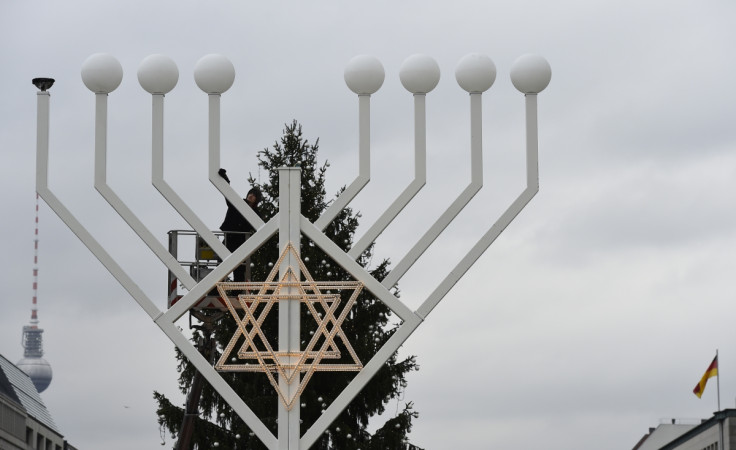Why do Christmas Eve and Hanukkah land on the same day in 2016?
The two celebrations coincide every so often - but it is rare.
For the first time in over a decade, Christmas Eve and the first night of Hanukkah will fall on the same day this year — on 24 December.
Although the two holidays normally occur in the festive period, the last time they coincided was in 2005, when the Jewish "festival of lights" – Hanukkah – landed on Christmas Day. This has only happened a handful of times over the last century.
Hanukkah, which lasts for eight days, is usually celebrated in November or December. The dates are determined by the Hebrew calendar, a lunar calendar, and the holiday will begin on the 25th day of the month of Kislev. It ends on the 2nd or the 3rd day of Tevet, as Kislev can have 29 or 30 days.
Unlike the Gregorian calendar, the dates of holidays on a lunar calendar change annually because it is based on cycles of the lunar phases. Therefore, other Jewish celebrations – such as Rosh Hashanah – do not occur on the same date every year.
This year, Hanukkah will begin at sunset on 24 December. Although a day in the Gregorian calendar begins at midnight, the Jewish day begins at sunset.
Hanukkah has taken place at the same time as other celebrations, such as the American holiday Thanksgiving. In 2013, both holidays took place on 28 November for the third time since Thanksgiving was given official status as a national holiday by Abraham Lincoln.
What is the history behind Hanukkah?
Hanukkah marks the Jews' struggle for religious freedom. Lasting eight days, it celebrates the victory of the Israelites led by a group of Jewish warriors called the Maccabees over the imperial power of Syria in 167 BCE. When the Second Temple in Jerusalem was looted and serviced halted, Judaism was prohibited. In 167 BCE, King Antiochus ordered an altar to Zeus to be erected in the temple. Circumcision was banned, and pigs were ordered to be sacrificed at the altar.
Led by the Judah Maccabee, or "Judah the Hammer", the Jewish rebellion that followed waged a war spanning three years. The Maccabees gained control of Jerusalem and when they rededicated the desecrated temple, they discovered a single container of oil with the seal of the high priest still intact.

According to the Talmud, pure olive oil with the seal of the high priest was needed for the nine-branched temple candelabrum which was required to burn throughout the night every night.
Although there was only enough oil for one day, the candles stayed alight for eight days – the time needed to prepare a fresh supply of kosher oil for the menorah. Known as the miracle of the oil, it is now marked with an eight-day festival.
© Copyright IBTimes 2025. All rights reserved.





















